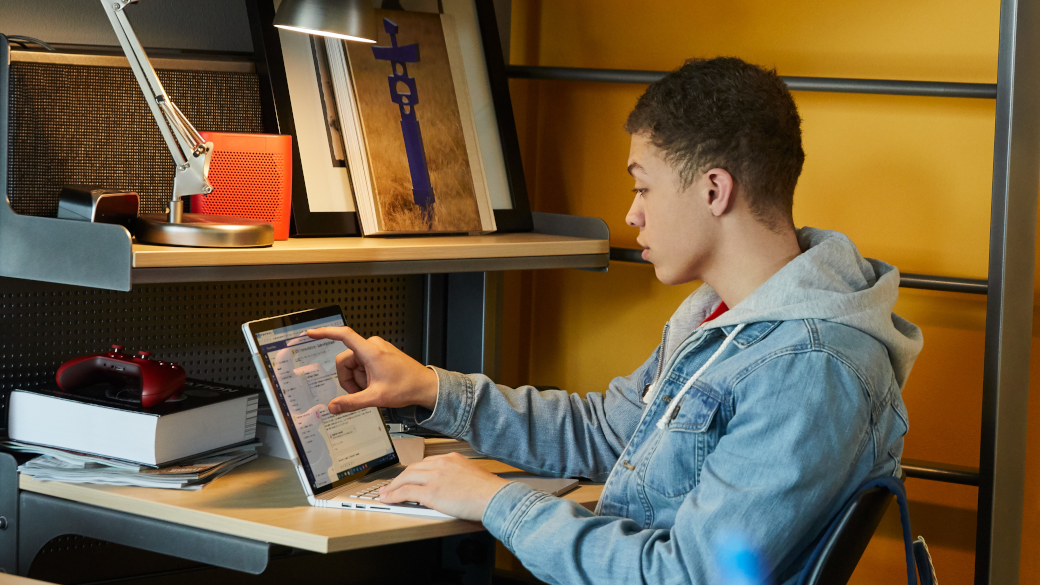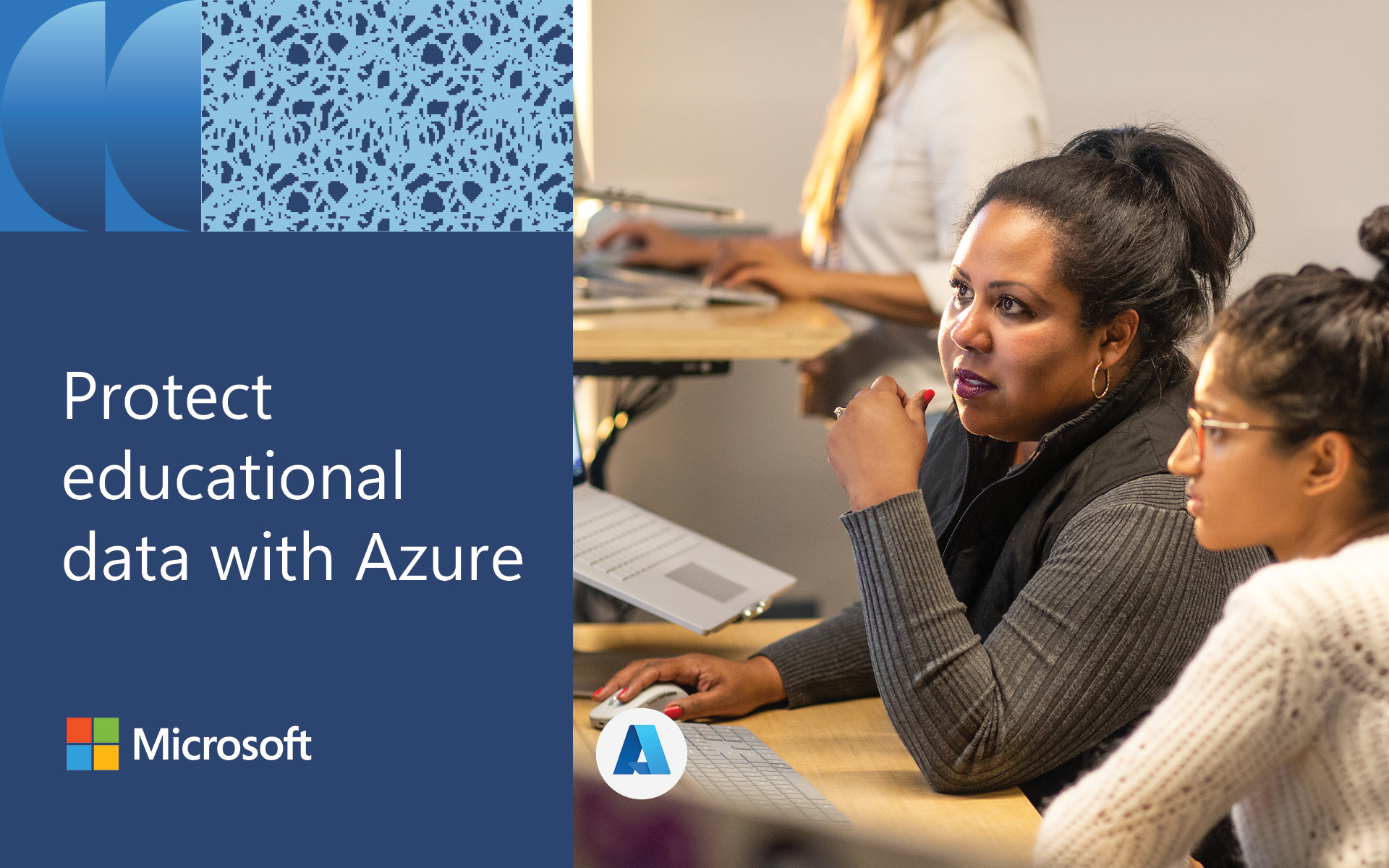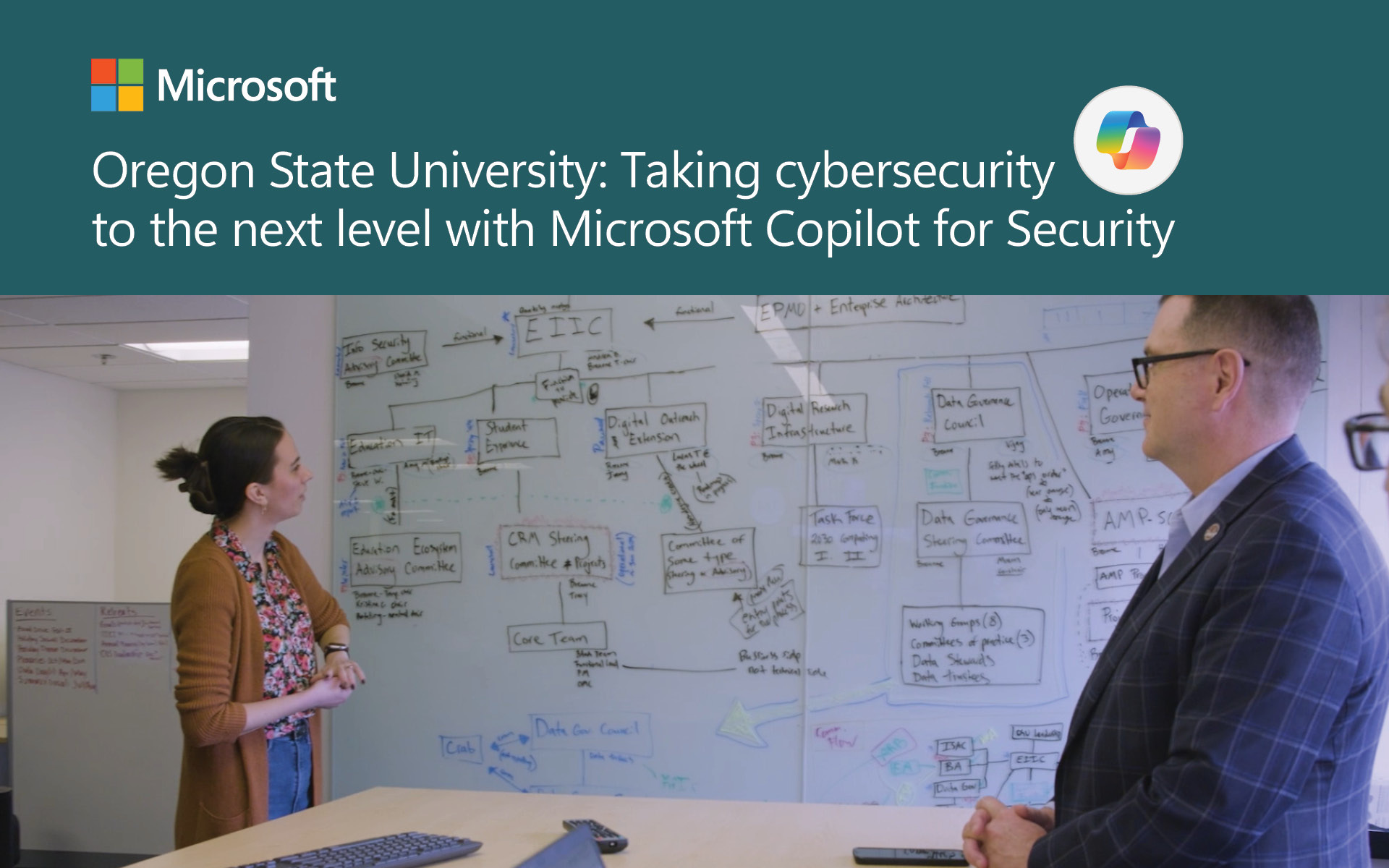There is no doubt that the economic and workforce transformation happening today will have long-term impact on the types of professions and careers that will grow in demand in the future. We’ve entered a stage where digital literacy is a global phenomenon, as Microsoft President Brad Smith, shared recently in the next stage of our Global Skills Initiative. While every job role will require some form of digital skills, we also appreciate the increasing demand for jobs across the IT sector and need to ensure that students today who are studying these disciplines have access to the right curriculum, hands-on experiences, and on-the-job training to best equip them to kick-start their careers when they graduate.
A new IDC white paper, sponsored by Microsoft, titled “Essential Learning: Skills for Early IT Career Success,” provides insights into what defines the most successful and least successful new hires in IT across a variety of industries and geographies. You can view the report here. The study surveyed supervisors from 453 organizations in Australia, New Zealand, the United Kingdom, and the United States who managed 906 entry-level hires. It sought to understand how the educational experiences in and out of the classroom for these new hires impacted their onboarding and impact during their first two years of employment.
The findings solidified the importance of student exposure to real-world technology experiences throughout higher education academic years, as well as the role that higher education institutions have in providing access to this learning.
The study shares that, “The speed with which entry-level employees can absorb their new environment is strongly correlated to the experiences and capabilities they bring with them to their first position. When new career entrants bring relevant technical, cultural, and interpersonal skills and experiences with them, they are more likely to be successful in their role. Managers identified role-specific technical skills (85%) and job experience (82%) as the types of experiences most important to new hire success.”
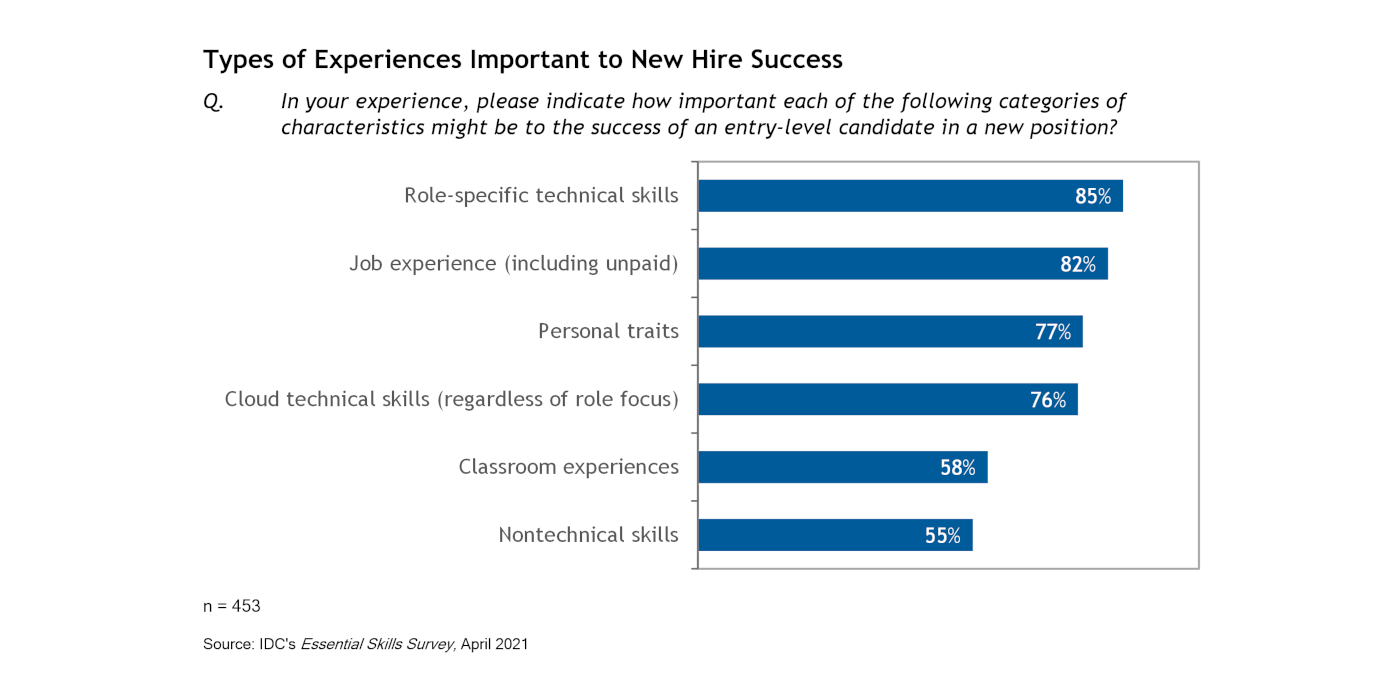
Not only did the experiences gained prior to initial employment influence the new hire’s ability to gain accelerated proficiency in their role, it also paved the way for the hire to have increased opportunity for rewards and promotions, and a propensity for a successful career within the organization.
Surveyed participants also indicated that new hires equipped with industry-recognized certifications and hands-on experience with cloud technologies proved more successful. “More than 60% of hiring managers believe that certification in a technology core to the position influences success.”
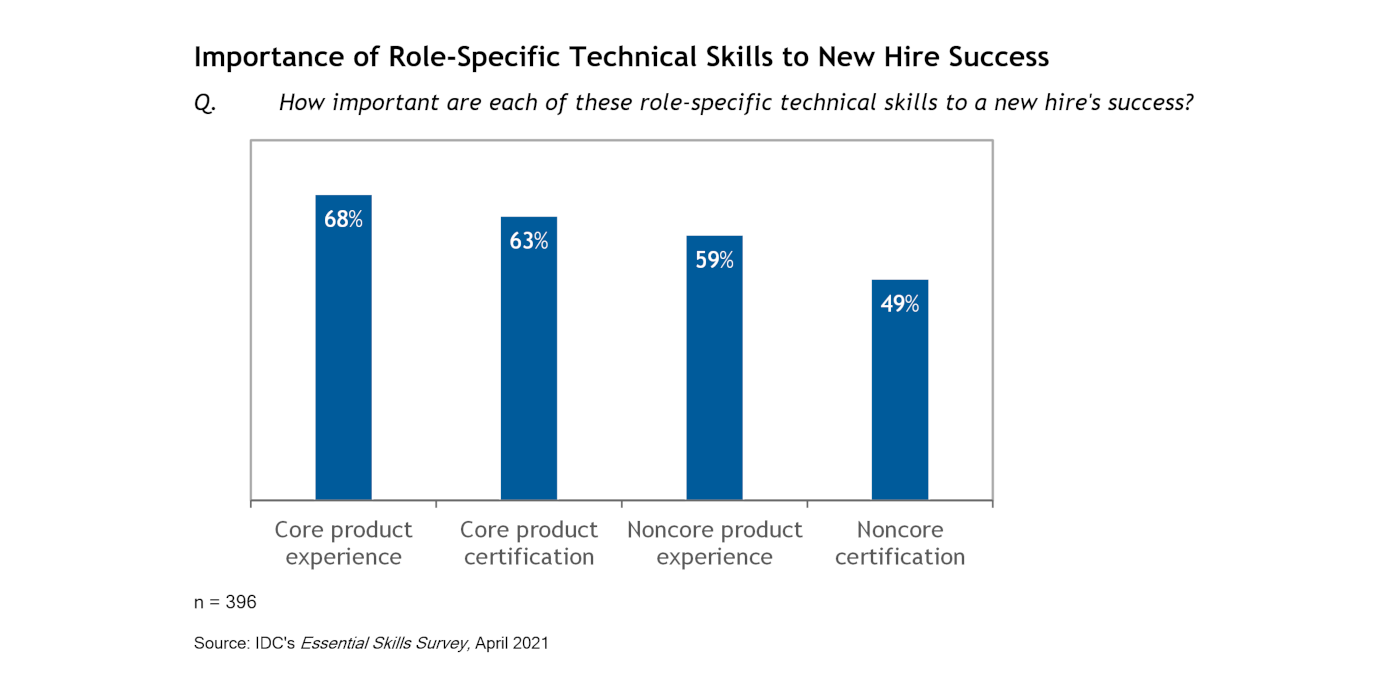
While the findings provide evidence on the importance of relevant curricula taught to students throughout their higher education or vocational education enrollment, we also know that there are many challenges for higher education institutions to keep up to date with the dynamic and changing technology ecosystem and workforce requirements.
Supporting institutions and students with technology curricula and experiences
Microsoft is working hard to support higher education institutions and faculty members to evolve curriculum and keep up to date with emerging technologies to teach their students. Through our skills-focused programs and offerings, along with LinkedIn and GitHub, we are poised to collaborate with faculty and students to best prepare for graduation and success from day one of new hire employment. We’ve already seen incredible examples of institutions adopting Microsoft’s Official Curriculum and leveraging Microsoft Learn for Educators and Azure for Students offerings, among others. This has included institutions such as Hong Kong Institute of Vocational Education, University of Lincoln, and others across Canada.
Take a look at the resources below and we look forward to collaborating with you in providing these experiences to educators and students:
- Microsoft Learn: Microsoft Learn provides self-paced, digital learning resources to build skills and a foundational understanding of technology. The learning paths have interactive sandbox environments to provide hands-on interactions with Microsoft technologies. Students can create a profile on Microsoft Learn to access additional features such as collections; track progress on learning activities, and view personalized recommendations. There is also a dedicated hub for students via Microsoft Learn for Students.
- Microsoft Learn for Educators: Microsoft Learn for Educators takes the best of Microsoft Learn online learning paths and supporting instructor-led training materials into the classroom. Eligible educators and faculty members can access Microsoft ready-to-teach curriculum and teaching materials aligned with industry-recognized Microsoft Certifications. Microsoft Learn for Educators provides access to a curriculum consisting of official Microsoft learning products for Microsoft Azure, Azure Data, Azure AI, and Power Platform fundamentals.
- Microsoft Certifications: Microsoft Certifications help validate students’ knowledge of technology. Microsoft has developed entry-level productivity certifications aligned to Microsoft Office Suite, intermediate Fundamentals Certifications, as well as more Advanced Role-Based Certifications. These exams are regularly updated to reflect the pace of change, focus on solutions for the modern workforce, and set the path for continuous learning opportunities for learners once certified. Institutions can also take advantage of flexible, scalable procurement options for Microsoft certification vouchers via their volume license agreement.
- Azure for Students: Students today are eager to get hands-on with technology and build for the future. With Azure for Students, eligible students aged 18 and over can start building apps, explore AI, and make the most of big data with access to more than 25 free Azure services plus $100 in Azure credit – renewable annually without the need for a credit card.
- Azure Lab Services: Azure Lab Services enables educators to set up and provide on-demand access to preconfigured virtual machines (VMs) to support classroom scenarios in higher education. Through these virtual classrooms, educators can teach a class, train professionals, run a hackathon or a hands-on lab, and more.
- GitHub Education: GitHub Education helps students, teachers, and schools access the tools and events they need to shape the next generation of software development. With programs such as the GitHub Student Developer Pack, GitHub Campus Program, GitHub Classroom, and other resources, students and educators can take advantage of solutions that will meet their needs.
- Career Coach: Career Coach, a Microsoft Teams app powered by LinkedIn, can help each student discover their unique career path, grow real-world skills, and build their network – all in one place.

